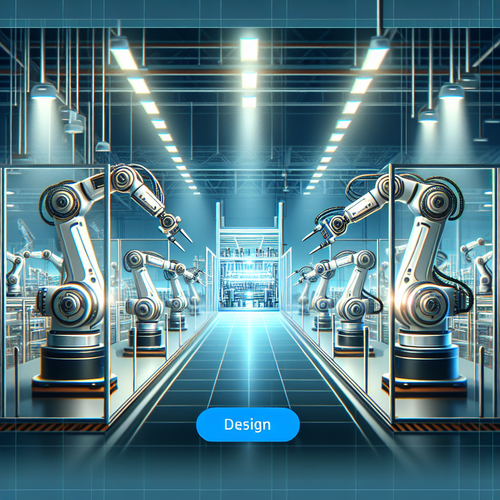
Unleashing the Potential of AI in Manufacturing
Unleashing the Potential of AI in Manufacturing
The manufacturing industry is on the brink of a major transformation, thanks to the integration of artificial intelligence (AI). As companies strive for efficiency and innovation, AI technologies are being adopted to optimize operations, enhance productivity, and drive growth.
The Role of AI in Manufacturing
AI systems analyze massive amounts of data in real-time, allowing manufacturers to make informed decisions quickly. From predictive maintenance to quality control, AI applications are becoming indispensable.
- Predictive Maintenance: AI algorithms can forecast equipment failures by analyzing sensor data. This proactive approach minimizes downtime and reduces maintenance costs.
- Quality Control: AI-driven vision systems inspect products for defects faster and more accurately than human workers, ensuring that only high-quality items reach consumers.
- Supply Chain Optimization: AI analyzes trends and patterns in supply chain data, helping manufacturers to manage resources more effectively and meet customer demands.
Implementing AI in Manufacturing
To harness the power of AI, manufacturers must first define their objectives and identify areas where AI can add value. Here are some steps for a successful implementation:
- Evaluate current processes to determine where AI can have the most impact.
- Invest in the necessary technology and infrastructure to support AI applications.
- Train employees on new technologies and processes to ensure smooth integration.
- Continuously monitor AI systems to optimize their performance and make adjustments as needed.
Case Studies of AI in Action
Several companies have successfully implemented AI technologies in their manufacturing processes:
- Siemens: The company uses AI-driven analytics to monitor machinery health, reducing unplanned downtime by 30%.
- General Motors: GM employs machine learning algorithms to manage its supply chain efficiently, resulting in reduced lead times and improved inventory management.
- Boeing: Boeing leverages AI for quality assurance in aircraft manufacturing, ensuring compliance with safety standards.
Future of AI in Manufacturing
The future of AI in manufacturing looks promising as advancements continue to emerge. The rise of smart factories is a testament to this shift. These factories leverage IoT devices and AI technologies to create interconnected systems that enhance operational efficiency.
For more insights on AI’s impact on different industries, read our article on How AI is Enhancing Cybersecurity in 2023.
Conclusion
As AI technology continues to evolve, its role in manufacturing will undoubtedly expand, paving the way for industry 4.0. Manufacturers who embrace AI will position themselves for success in an increasingly competitive market.













